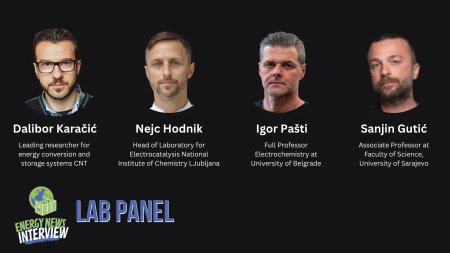Despite the fact that hydrogen fuel derived from the sea could be a plentiful and environmentally friendly alternative to fossil fuels, the potential power source has been limited by technical challenges, including the question of how to harvest it practically.
Researchers at the University of Central Florida have developed, for the first time, a nanoscale material that can efficiently split seawater into oxygen and a clean energy fuel — hydrogen — without releasing any harmful chemicals. Water splitting into hydrogen and oxygen is known as electrolysis, and until now, successfully performing this process has been a difficult task for scientists.
The stable and long-lasting nanoscale material used to catalyze the reaction, which was developed by the University of Central Florida team, is described in this month’s issue of the journal Advanced Materials.
According to Yang Yang, an associate professor in the University of Central Florida’s NanoScience Technology Center and study co-author, “this development will open a new window for efficiently producing clean hydrogen fuel from seawater.”
According to the United States Department of Energy, hydrogen is a form of renewable energy that, if made cheaper and more accessible to produce, has the potential to play a significant role in combating climate change.
Yang believes that hydrogen could be converted into electricity for use in fuel cell technology, which would generate water as a byproduct and result in a more sustainable energy cycle overall.
The researchers created a thin-film material with nanostructures on the surface made of nickel selenide with additional iron and phosphor, which they referred to as “doped.” Due to issues such as competing reactions within the system, which threaten efficiency, this combination provides the high performance and stability required for industrial-scale electrolysis, but it has been difficult to achieve due to the issues such as competing reactions within the system, which have made it difficult to achieve.
Yang explains that the new material balances the competing reactions in a way that is both low-cost and high-performance, while also being environmentally friendly.
The researchers were able to achieve high efficiency and long-term stability for more than 200 hours by employing their design.
According to Yang, “the electrolysis performance of seawater achieved by the dual-doped film significantly outperforms that of the most recently reported, state-of-the-art electrolysis catalysts and meets the demanding requirements required for practical application in the industries.”
According to the researcher, the team will continue to work on improving the electrical efficiency of the materials that they have developed in the future. They are also looking for opportunities and funding to help them accelerate and commercialize their research and development.








